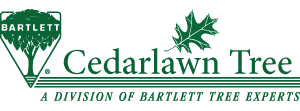Bio-Rational Pesticides
One of an arborists’ main duties is diagnosing and treating insect problems in the landscape. Trees and shrubs act as the food for many different insects some of which reduce the vigor and health of the plant. Sometimes the insect pest is nothing more than a nuisance, but in other situations, the life of the tree or shrub may be in jeopardy. We make the decision to treat based on the severity of the insect, the threshold for damage to the tree or shrub, and most importantly if the timing for control is appropriate. Insect damage to trees can be quite detrimental if not taken care of appropriately.
If we make the decision to treat, and we know the timing for control is right on, we now have to decide what product to apply for pest management. In the past, the use of broad spectrum synthetic pesticides which persisted in our environment were the only choice. These pesticides not only harm beneficial insects, but also pose risks to the applicator. Fortunately, over the last decade or so, our arborist doctors’ bag has been filled with a whole new group of “Bio-rational” pest control tools.
Bio-rationals are relatively non-toxic and environmentally friendly. These pesticides are the environmentally smart choice by being very selective by targeting the pest, leaving the beneficial insects safe.
Over the next few weeks we will take a closer look at some of the safer decisions we can make when it comes to caring for New England landscapes. We will discuss some of the common insect issues encountered and the Bio-rational approach to control.





